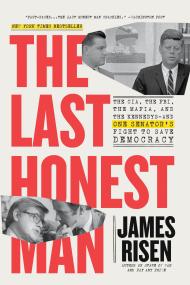By clicking “Accept,” you agree to the use of cookies and similar technologies on your device as set forth in our Cookie Policy and our Privacy Policy. Please note that certain cookies are essential for this website to function properly and do not require user consent to be deployed.
Golden Years
How Americans Invented and Reinvented Old Age
Contributors
Formats and Prices
Price
$18.99Price
$24.99 CADFormat
Format:
- ebook $18.99 $24.99 CAD
- Hardcover $32.00 $42.00 CAD
Also available from:
An “essential” (The New Republic) account of the history of old age in modern America, showing how we created unprecedented security for some and painful uncertainty for others
On farms and in factories, Americans once had little choice but to work until death. As the nation prospered, a new idea was born: the right to a dignified and secure old age. That project has benefited millions, but it remains incomplete—and today it’s under siege.
In Golden Years, historian James Chappel shows how old age first emerged as a distinct stage of life and how it evolved over the last century, shaped by politicians’ choices, activists’ demands, medical advancements, and cultural models from utopian novels to The Golden Girls. Only after World War II did government subsidies and employer pensions allow people to retire en masse. Just one generation later, this model crumbled. Older people streamed back into the workforce, and free-market policymakers pushed the burdens of aging back onto older Americans and their families. We now confront an old age mired in contradictions: ever longer lifespans and spiraling health-care costs, 401(k)s and economic precarity, unprecedented opportunity and often disastrous instability.
As the population of older Americans grows, Golden Years urges us to look to the past to better understand old age today—and how it could be better tomorrow.
On farms and in factories, Americans once had little choice but to work until death. As the nation prospered, a new idea was born: the right to a dignified and secure old age. That project has benefited millions, but it remains incomplete—and today it’s under siege.
In Golden Years, historian James Chappel shows how old age first emerged as a distinct stage of life and how it evolved over the last century, shaped by politicians’ choices, activists’ demands, medical advancements, and cultural models from utopian novels to The Golden Girls. Only after World War II did government subsidies and employer pensions allow people to retire en masse. Just one generation later, this model crumbled. Older people streamed back into the workforce, and free-market policymakers pushed the burdens of aging back onto older Americans and their families. We now confront an old age mired in contradictions: ever longer lifespans and spiraling health-care costs, 401(k)s and economic precarity, unprecedented opportunity and often disastrous instability.
As the population of older Americans grows, Golden Years urges us to look to the past to better understand old age today—and how it could be better tomorrow.
-
“Golden Years is a highly perceptive account, the most substantial one we have, of how seniors rose to become a dominant force in the United States.”Daniel Immerwahr, New Yorker
-
“Essential…Chappel expertly examines the changes that might allow a reimagining of old age in the shadow of ‘the gray, hot century to come.’”New Republic
-
“Writing in clear, accessible prose, [Chappel] surveys a century’s worth of evolving understandings and experiences of old age in America…What is revelatory is his account of Black activism on these issues and various efforts over the decades to push the system toward greater fairness.”Los Angeles Times
- On Sale
- Nov 19, 2024
- Page Count
- 368 pages
- Publisher
- Basic Books
- ISBN-13
- 9781541619517
Newsletter Signup
By clicking ‘Sign Up,’ I acknowledge that I have read and agree to Hachette Book Group’s Privacy Policy and Terms of Use







